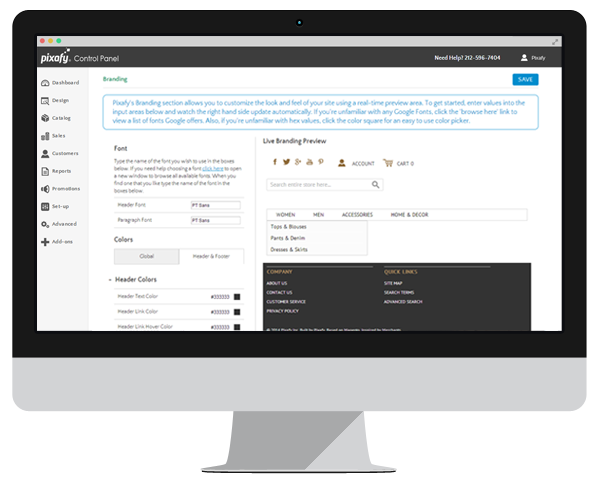
It’s been over a month since eBay / Magento announced that they would be deprecating their hosted, SME-focused ecommerce platform, Magento Go – which will be closed officially on the 1st of February 2015. I don’t really see it as a surprise that Magento have made this decision, for the following reasons:
- The SME platform market is very competitive (with big players like BigCommerce & Shopify growing rapidly) and it requires a lot of focus / resource to continue to grow
- Other vendors were offering better solutions and were throwing more money / resource at their platforms
- Magento CE and EE need to remain the key focus (EE for revenue, CE for branding and upgrade path)
- I doubt they generated as much revenue as they expected
Despite this, there are still thousands of SME retailers left platform-less come February next year – so what options do they have? The obvious choices… The following three ecommerce platforms are what I consider to be the obvious choices for Magento Go retailers, however I’ve also referenced others below.
Magento Community

Magento Community (CE) is the biggest ecommerce platform in the world (in terms of number of merchants) and it’s ‘arguably’ (I’d debate this) suitable for retailers of all sizes. Magento CE is not a hosted platform like the others listed below (and Go) and I’d personally say it’s more suited to more seasoned ecommerce professionals and businesses.
Magento CE has a lot of positives, such as Magento Connect (the module store), its massive developer following, the intuitive and comprehensive back-end, the amount of service providers available, lots of pre-ready integrations and much, much more. But, if you’re migrating from Magento Go, there are also a lot of potential hazards that need to be considered. Magento CE is a completely different ball game to Go – it’s a much bigger platform that represents a big challenge in terms of development (lots of PHP developers are scared of Magento and consider it very different to other PHP platforms).
Magento also has some weaknesses that require investment in order to resolve – such as its speed and out of the box SEO (mainly duplicate content issues). I would suggest that if you’re looking at Magento CE, you need to be using an established agency or developer and you’ll need to have a good budget for development, hosting and support.
I wrote this post about choosing a Magento service provider – it could be worth a read in order to gauge the amount of thought that needs to go into this migration.
BigCommerce
 BigCommerce is a great platform and it’s growing really, really fast! They recently recruited Tim Shultz (ex-Magento) to lead the development of their product and they’re also recruiting a lot of senior product and tech people in their San Fran office.
BigCommerce is a great platform and it’s growing really, really fast! They recently recruited Tim Shultz (ex-Magento) to lead the development of their product and they’re also recruiting a lot of senior product and tech people in their San Fran office.
BigCommerce is a really good option, as the two platforms (vs Magento Go) are relatively similar, but BC is likely to offer more in terms of plugins and themes – plus they’re offering to migrate Magento Go retailers for free! BigCommerce, which currently supports > 50k retailers, is similar to Magento Go (and Shopify) in terms of price, starting at just $29.95.
Shopify

I have a lot of experience of working with Shopify and I can’t really fault it to be honest. Shopify is a great platform and it offers a lot of great functionality out of the box, whilst also offering LOTS more via their app store.
The main benefit of choosing Shopify over BigCommerce is that there’s a lot more documentation available (because it’s got more users and a bigger developer following) and their app store contains an unrivalled number of plugins and themes. Shopify is also pre-integrated with a range of payment gateways and it also allows merchants to take payment via PayPal (out of the box) and bitcoin (if your store is ran by hipsters or nerds).
Shopify is also similarly priced to Magento Go, starting from just $29 per month. Shopify is a really strong option and one I’d strongly suggest looking at. I’d suggest that this is the best option for retailers looking to support their own store that aren’t likely to need to implement any custom functionality in the near future.
If you’re a larger retailer looking to scale (and have budget for this project), I’d suggest Magento CE could be the better option.
Pixafy Instant
 Pixafy Instant looks like an interesting solution, that I wasn’t originally aware of.
Pixafy Instant looks like an interesting solution, that I wasn’t originally aware of.
Pixafy Instant is a hosted solution based off of Magento Community, but with a custom back-end. The platform offers a lot of the functionality that some of the other platforms offer, such as coupon codes, Google Analytics integration, responsive email templates, lots of fonts etc – Pixafy also suggest that their solution is optimised for speed, which is something that Magento CE isn’t out of the box.
The more expensive packages (starts at $50 p/m) also offer more advanced features, such as SSL license and a CDN. I’d definitely suggest that this option is worth a look – they’re also offering free migrations from Magento Go.
Llama Commerce

Llama Commerce, similarly to Pixafy Instant, is a Magento Community-based platform but it’s pricing structure is very different. Llama Commerce offer three products, which are:
- Quick Launch – Free – Magento Community site with fairly limited options, with hosting via Simple Helix).
- Jumpstart – $5k – Magento Community site with more functionality and a small amount of support time – hosting via Simple Helix).
- Custom build – $50k – Magento CE or EE website with a lot more room for customisation. Project management and support desk time included in the cost, as well as some third party modules to add more functionality.
One of the main benefits of using Llama Commerce is that you’re essentially getting a full Magento CE website, which has been configured for you – giving you more power / functionality than some of the SaaS options.
All three of these packages look like good value and you’re getting the benefit, as with Pixafy, of working with an experienced Magento agency.
Launch Pad from Creatuity
Similarly to the last two, Launch Pad is another Magento-based offering that represents an affordable way to launch a Magento Community website.
Launch Pad offers some great features, including rich snippet optimisation as standard, improved CMS functionality, Google Analytics event tracking (out of the box), integration with MailChimp and an SSL certificate is included. Launch Pad is also sold as a very fast platform that has been optimised out of the box. Launch Pad is also fully supported – which adds a lot of value for those who are not in a position to develop their own websites. Here are the three pricing options:
- Cloud – (not available yet) – this option gives you a website in one business day and entitles you to training and theme-based design.
- Orbit – ($4,000) – this option gives you an open Magento Community website in one business day and includes the features referenced above (modules, rich snippets etc).
- Custom – (starts at $10,000) – this option includes the LaunchPad feature-set and provides a completely custom built website. This option will provide you with a fully functional Magento ecommerce website within one month.
—
Other options
- Woo Commerce – WooCommerce is an add-on for WordPress and it’s very highly regarded by lots of small retailers that I know. I’d suggest that this could be an option for users that are familiar with or prefer WordPress, but in terms of functionality and ease of use, I’d say I’d prefer Shopify.
- Prestashop – I don’t really know much about Prestashop, but they power quite a lot of ecommerce stores and, from what I’ve been told, they’re worth a look.
- CS Cart – Again, I don’t know too much about this platform – but it seems very similar to Shopify, minus the strong app store and developer following.
— If you think there’s a platform I’ve missed or if you want advice on this – please feel free to comment below or email me ([email protected]).